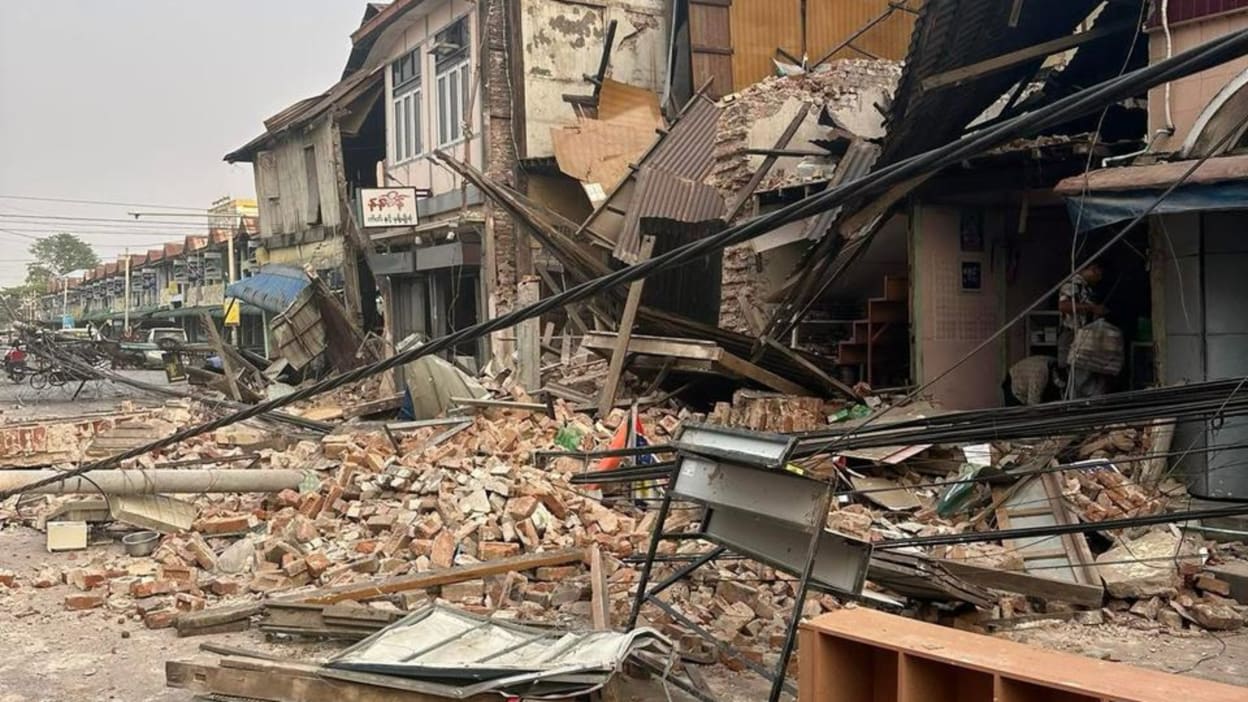Four months after the earthquake, Myanmar's economy still in ruins
The World Bank has forecast a 2.5% contraction in GDP, while direct damage is estimated at billion. Religious groups continue to bring aid to the population, but poverty, already over 30% before the quake, is likely to increase further. The testimony of those who lost their homes and continue to live in tents.
Yangon (AsiaNews) - The earthquake that devastated Myanmar at the end of March has further aggravated the economic crisis. The latest World Bank report has highlighted that the national economy is set to contract by 2.5% in the 2025/26 fiscal year, mainly due to the consequences of the earthquake.
The 7.7-magnitude quake caused direct damage estimated at billion, equivalent to about 14% of the country's GDP. It is estimated that over 17 million people were affected in the regions of Mandalay, Sagaing, Bago, Naypyidaw and Magway, with nine million suffering serious consequences.
The death toll stands at 3,700, according to the ruling military junta, but the real figure is likely to be much higher but impossible to determine because the Burmese generals have restricted the entry of rescue teams from abroad.
In Mandalay, thousands of homes, churches and monasteries have been destroyed or severely damaged. Many nuns have also been left homeless. Yet the religious women continue to offer help to others. Several religious groups have organised emergency teams to provide food, shelter and assistance, filling the gaps left by the authorities.
‘We lost our home in the earthquake and now we live in a small tent,’ says Nu Jan, a Catholic woman from Mandalay. ‘My husband lost his job because the factory closed, and market prices continue to rise. I pray every day to find strength. The nuns bring us food and water, but we need hope for the future. We try to stay strong for our children, but it is very difficult.’
“The earthquake caused serious loss of life and displacement, further worsening already difficult economic conditions. Reconstruction efforts are essential to help the most vulnerable populations,” said Melinda Good, World Bank Director for Thailand and Myanmar.
Several sectors have reported damage to their factories and infrastructure. The Mandalay and Naypyidaw regions are at risk of losing a third of their production by September, although reconstruction efforts could lead to a partial recovery in the second half of the year. Nationwide, production will be about billion lower than pre-earthquake forecasts.
The earthquake struck a country already marked by strict trade and currency controls and severe energy shortages. In April this year, inflation rose to 34.1% year-on-year, putting further pressure on household savings. The poverty rate, at 31% before the earthquake, could rise by another 2.8 percentage points, according to experts.
‘The crises building up in Myanmar are severely testing the population's ability to survive,’ explained economist Kim Edwards. ‘As a result, more and more workers are accepting low-value jobs and children's education is also being compromised, posing a serious risk to the country's future.’
03/02/2021 10:50
02/02/2021 13:45







.png)










